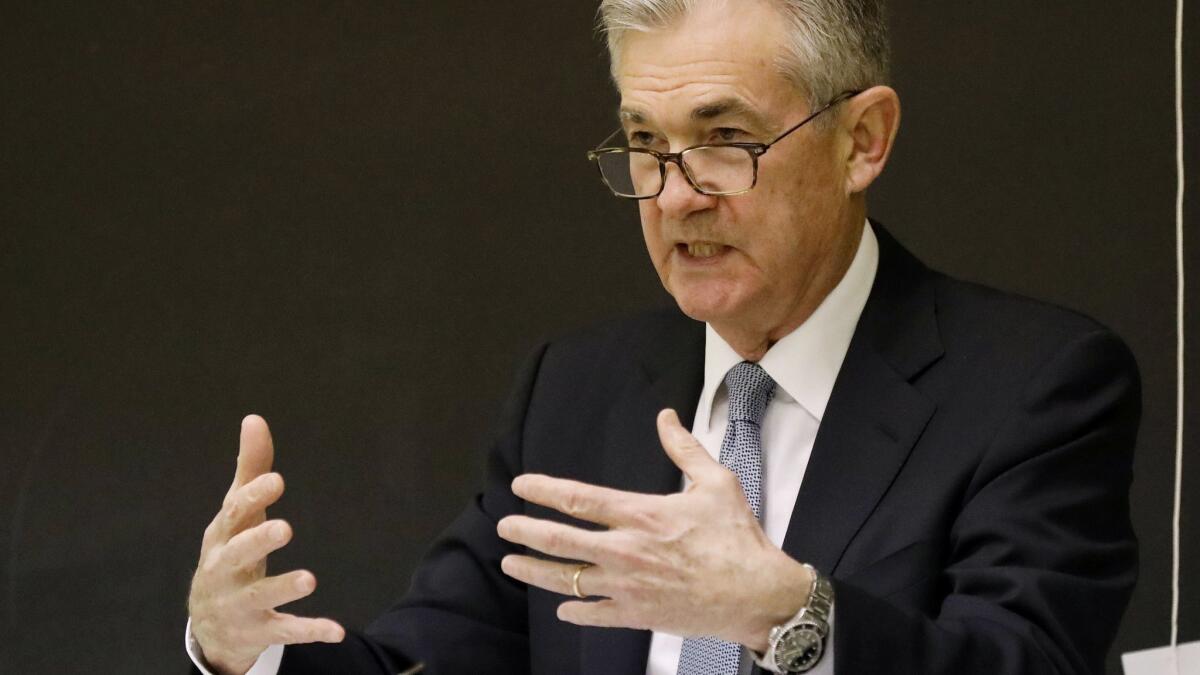Fed sees dim economic outlook as virus squeezes economy

- Share via
The Federal Reserve expressed concern Wednesday that the persistent viral outbreak will act as a drag on the economy and hiring in the coming months and said it plans to keep its benchmark short-term interest rate pegged near zero to help provide support.
In a statement at the end of its policy meeting Wednesday, the Fed acknowledged that the COVID-19 pandemic “will weigh heavily on economic activity, employment and inflation.”
The policymakers added a new sentence to their statement: “The path of the economy will depend significantly on the course of the virus” — an acknowledgement that uncertainty about when the health crisis might be solved has complicated the Fed’s ability to set interest rate policy.
It’s an observation that Chairman Jerome H. Powell has made, in one way or another, for months as most states have succeeded only fitfully in controlling the virus and the ability of businesses to stay open. And it suggested that Powell and the Fed envision a prolonged recovery whose outcome will depend at least as much on the path of the virus as on the actions the Fed might take.
“A full recovery,” Powell said at a news conference, “is unlikely until people are confident that it is safe to engage in a broad range of activities.”
The Fed announced no new policies in its statement. It said it will also continue to buy about $120 billion in Treasury and mortgage bonds each month, which are intended to inject cash into financial markets and spur borrowing and spending.
The Fed’s overall message that it would keep rates low indefinitely with the economy in a severe downturn was widely expected by investors, and reaction in financial markets was muted. Stocks maintained their gains, and Treasury yields held steady.
Economists say the Fed has time to consider its next policy moves because short- and long-term rates remain historically ultra-low and aren’t restraining economic growth. Home sales have picked up after falling sharply in the spring. The housing rebound has been fueled by the lowest loan rates on record, with the average 30-year mortgage dipping below 3% this month for the first time in 50 years.
With the economy struggling just to grow, small businesses across the country in serious danger and unemployment very high at 11.1%, few investors expect the Fed to hike interest rates for perhaps years to come. After its previous meeting last month, the Fed had signaled that it expected to keep its key short-term rate near zero at least through 2022.
More to Read
Inside the business of entertainment
The Wide Shot brings you news, analysis and insights on everything from streaming wars to production — and what it all means for the future.
You may occasionally receive promotional content from the Los Angeles Times.










